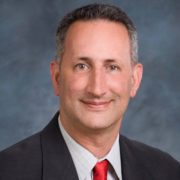QUESTION: I will be applying for asylum. I’m not exactly sure of the process, but if I lose, will I be deported?
Answer: Clients who have arrived in the United States and who have not been issued a Notice to Appear (NTA) will apply for asylum “affirmatively,” meaning that they will be interviewed at an asylum office, and an asylum officer (AO) will decide their case. Such clients are sometimes called “applicants.” The application is made by mail to a U.S. Citizenship and Immigration Services (USCIS) Service Center, and includes Form I-589, Application for Asylum and for Withholding of Removal. The place where the client lives determines which service center should receive the package.
The client can bring a friend or family member to the interview to act as an interpreter, if needed, as well as an attorney. If interpretation is used, the AO will use a phone monitor to ensure that the interpreter is providing accurate service. All family members who are included in the application should appear at the interview. However, the AO typically does not need to speak to anyone other than the principal applicant.
An asylum interview is non-adversarial, meaning that no government attorney is there to oppose the case. The AO is neutral. In practice, the purpose of an asylum interview is for the AO to assess the client’s credibility. At the conclusion of the interview, the client’s attorney may summarize key facts and legal issues for the AO to consider.
At some asylum offices, the client is notified that he or she should return to the asylum office to receive the AO’s decision. In many cases a decision is mailed instead. Note that it will take in some places 2 to 4 years to actually receive the interview.
The AO can make one of three decisions about an asylum claim. First, the AO may grant the case. The client will be mailed a letter outlining his or her rights and benefits as an asylee, a stamped I-94 card showing asylee status, and an Employment Authorization Document (EAD).
Second, the AO may deny the case. This can only happen if the client is in lawful status, such as F-1 student. An AO can only deny the case if the client has a legal status to fall back on.
Before denying the case, the AO will usually send a Notice of Intent to Deny (NOID) that outlines his or her concerns, such as inconsistencies in the client’s testimony. The client will have an opportunity to respond and provide additional evidence. If the AO is still unconvinced that the case has merit, he or she will deny it. As with approvals, the client will get written notice of the denial.
Question: If it is denied, what happens?
Answer: Clients who have been issued a NTA are in removal proceedings. Clients may receive an NTA because they filed affirmatively but were referred to court by an AO. Also, clients who have passed a Credible Fear Interview similarly go before an immigration judge. This process will take one to two years depending on the backlog of the court.
Question: What if I lose at the Immigration Court?
Answer: You will then have 30 days in which to appeal to the Board of Immigration Appeals (BIA). This is still an administrative body. It will take about one to two years to receive a decision by the BIA.
Question: What happens if I lose at the BIA?
Answer: This will be your first opportunity to appeal via what is known as a Petition for Review. This is when it will actually go to the Circuit Courts of Appeal and be heard by three justices. This usually takes another year.
Question: What if I will lose at the Circuit Court of Appeal?
Answer: This means that you can do a Petition for Rehearing En Banc. This is when it still stays at the Circuit Court of Appeal, but is transferred to the entire panel of Justices, not just three. This takes about another six months.
Question: What if I lose the Petition for Rehearing?
Answer: You would then do a Writ of Certiorari to the U.S. Supreme Court. To get to this point, many times, it will take eight to 10 years.
* * *
Atty. Brian D. Lerner has been an Immigration Attorney for nearly a quarter of a century. He is married to a Filipina and has helped thousands of Filipino families all over the country. In addition to his offices in Southern California in Long Beach and Carson, he has an office in Quezon City. He is a certified specialist in Immigration and Nationality Law by the Legal Board of Specialization, California State Bar. The initial consultation is free. Call (562) 495-0554 and/or send an e-mail to blerner@californiaimmigration.us.






